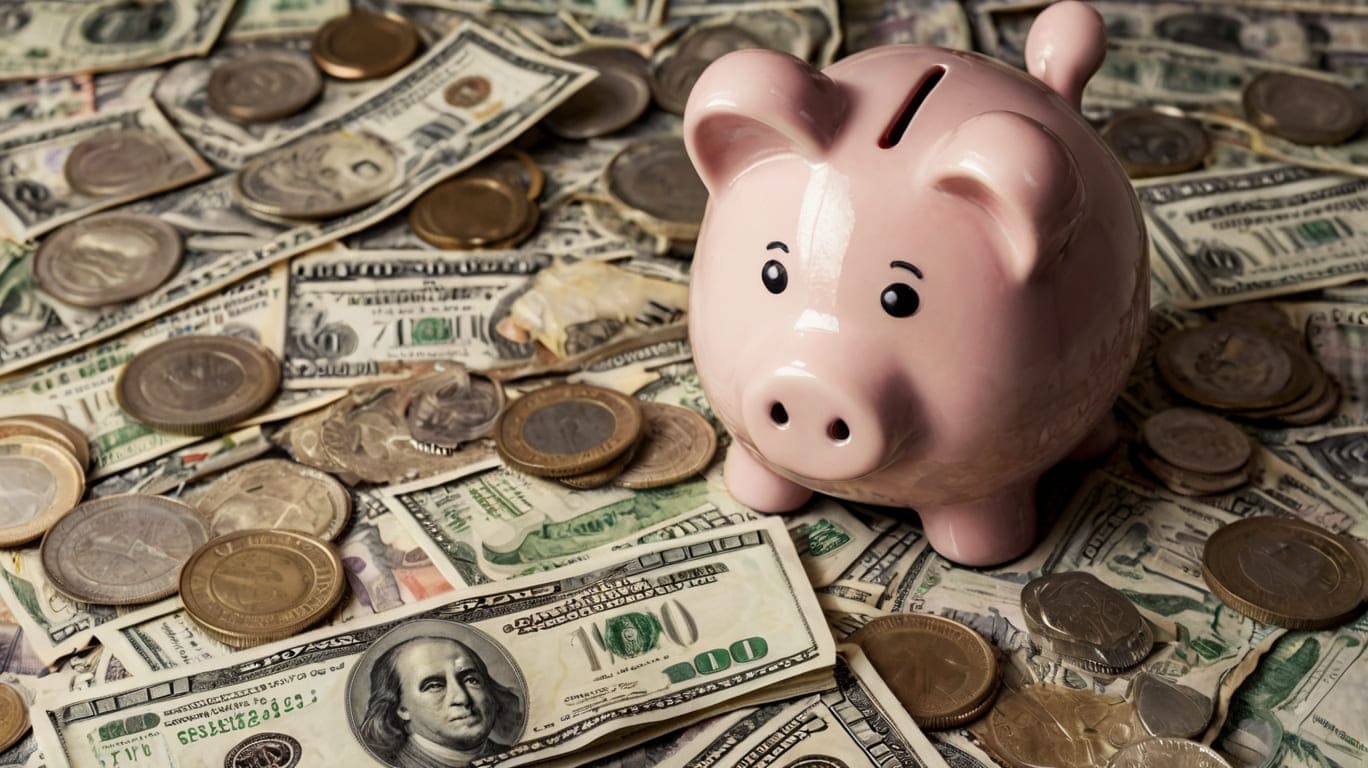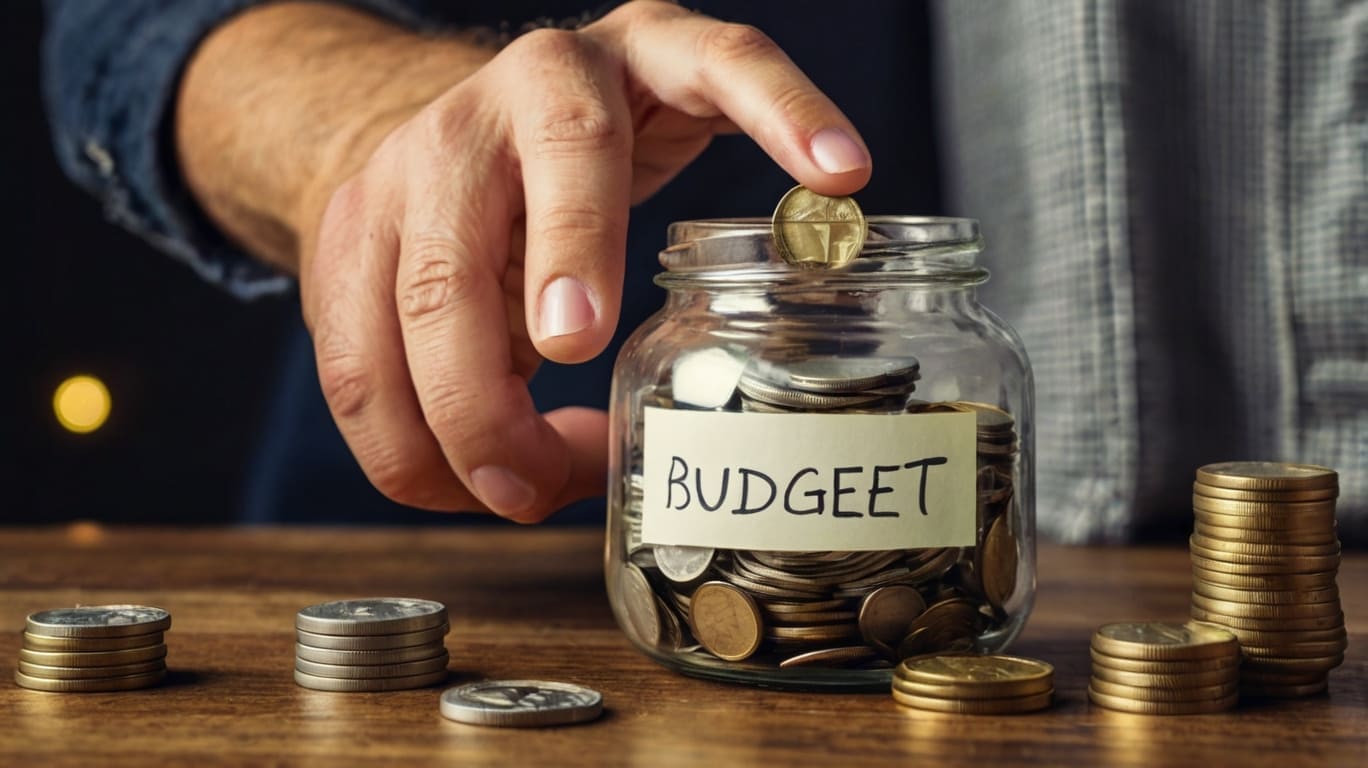💲How to create a personal budget becomes essential knowledge when you consistently find yourself wondering where all your hard-earned money disappeared to by the end of each month.
If managing your finances feels more like solving a complex mystery than following a straightforward process, you’re likely among the countless individuals who haven’t yet harnessed the transformative power of a well-structured budget.
In today’s increasingly fast-paced and expensive world, having a clear budgeting system can truly mark the difference between persistent financial anxiety and lasting peace of mind. This fundamental financial practice turns what initially appears to be an overwhelming task into not just a manageable routine but an empowering experience.
With proper budgeting, you’ll find yourself firmly in control of your financial future rather than leaving your economic wellbeing to chance—a shift that can completely transform your relationship with money and set you on the path to achieving your long-term financial goals. 🌟
Understanding the Importance of a Personal Budget
💲Before delving into how to create a personal budget, it’s crucial to understand why it’s necessary. A personal budget serves as a roadmap for your finances, allowing you to track income and expenses while guiding you toward your financial goals.
By implementing a budget, you’re enabling yourself to make informed financial decisions rather than impulsive purchases that can derail your financial stability. Ultimately, a personal budget helps you control your money instead of letting your money control you. 🌟
Basic Components of a Personal Budget
Creating a personal budget involves understanding and organizing several key components, each as important as the next. Let’s break these components down in the following table to give you a clearer picture:
| Component | Description | Example |
|---|---|---|
| Income | The total amount of money you earn, including salary, bonuses, and any other sources. | Monthly salary, rental income |
| Fixed Expenses | Regular, unchanging expenses you must pay each month. | Mortgage, car payment |
| Variable Expenses | Expenses that can fluctuate each month. | Groceries, utilities |
| Savings | Funds set aside for future needs or emergencies. | Retirement contributions, emergency fund |
| Debt Repayment | Money allocated toward paying down debt. | Credit card payments, student loans |
Properly recognizing and categorizing these components ensures a comprehensive approach to managing your finances.
Setting Financial Goals

💲An effective personal budget aligns with your financial goals, which can vary vastly from person to person. Do you aim to pay off all credit card debt, save for a dream vacation, or maybe build a sufficient emergency fund?
Setting clear, achievable goals will guide how you allocate your budget. Reflect on your long-term aspirations and daily spending habits. Set both short-term and long-term goals, as they provide motivation and direction for your financial plans. 🌟
“A budget is more than just a series of numbers on a page; it is an embodiment of our values.” – Barack Obama
Tracking Your Income and Expenses
Monitoring your income and expenditures is fundamental to maintaining a balanced budget. Use tools like spreadsheets, budgeting apps, or handwritten logs to track every financial transaction. It’s crucial to remain consistent with your tracking methodology to ensure accuracy and ease of use.
Make a habit of recording expenses as they happen to avoid inaccuracies or forgotten entries. A detailed record of your earnings and outflows will also reveal spending patterns, helping you identify areas for improvement or cutbacks. 🌟
Drafting Your Budget Plan

💲With a clear image of your financial incomings and outgoings, begin drafting your budget plan. Start by listing your total monthly income and monthly expenses, including fixed, variable, and discretionary spending.
Subtract your expenses from your income to determine your disposable income or, if it’s negative, your deficit. Be realistic about your spending limits to avoid setting yourself up for failure. Your budget should be both practical and flexible to accommodate unexpected expenses. 🌟
Using Budgeting Tools and Apps
💲Utilizing budgeting tools and apps can significantly streamline the budgeting process. Many modern tools provide options to automate common budgeting tasks, such as tracking spending, calculating totals, and generating reports.
Popular apps include Mint, YNAB (You Need A Budget), and Personal Capital. Each app offers unique features catering to various financial needs and preferences, so it’s worthwhile to explore and experiment with different tools until you find the ideal fit for your lifestyle.
1- Mint: Intuitive interface, automatic transaction tracking.
2- YNAB: Emphasizes active budget participation and future planning.
3- Personal Capital: Integrates personal finance management and investment tracking.
Making Adjustments to Your Budget
After drafting the initial budget and utilizing it for a couple of months, reassessment is necessary. Life circumstances change, and so should your budget. Examine areas where you’ve stayed under budget and where you’ve overspent.
Make adjustments to accommodate these realities, increasing allocations in necessary categories while cutting back in others. These changes ensure your budget continually reflects your current financial situation and goals. 🌟
Building an Emergency Fund
💲One of the essential components of a personal budget is an emergency fund, a safety net for unforeseen expenses such as medical emergencies or job loss.
Aim to save three to six months’ worth of living expenses, contributing regularly to this fund as part of your budget.
Prioritize building your emergency fund before focusing on other long-term savings, as it provides financial security and minimizes future stress. 🌟
FAQ – Dúvidas Comuns
✅ What is the best method to track expenses?
The best method depends on personal preference. Some prefer digital apps for convenience, while others opt for spreadsheets or pen and paper for more tangible control.
✅ How often should I review my budget?
Monthly reviews are recommended to ensure your budget remains relevant to your current financial situation.
✅ What if I have irregular income?
For irregular income, focus on budgeting for your lowest expected income level each month and save any excess for leaner months.
✅ Why is it necessary to differentiate between fixed and variable expenses?
Differentiating helps you understand which expenses are flexible and potentially adjustable, offering opportunities for savings.
✅ Is it okay to occasionally break my budget?
Occasional flexibility is fine, but consistency is key. Regularly breaking your budget indicates the need for revised allocations.
Conclusion
💲Creating a personal budget doesn’t have to be an overwhelming endeavor. By understanding its importance, setting clear goals, and leveraging modern tools, you have the ability to transform your financial landscape.
Embrace your budget as a living document, one that grows and adapts alongside your financial situation. When managed correctly, a personal budget empowers you to make informed decisions, minimizes financial stress, and helps you achieve your financial dreams. 🌟
👉 From Zero to Financial Freedom
The “From Zero to Financial Freedom” course is essential to ensure a more prosperous and peaceful future for you and your family. It’s an excellent option for those seeking efficiency and quality on their journey toward financial independence.

